An outstanding year of nuclear research and innovation
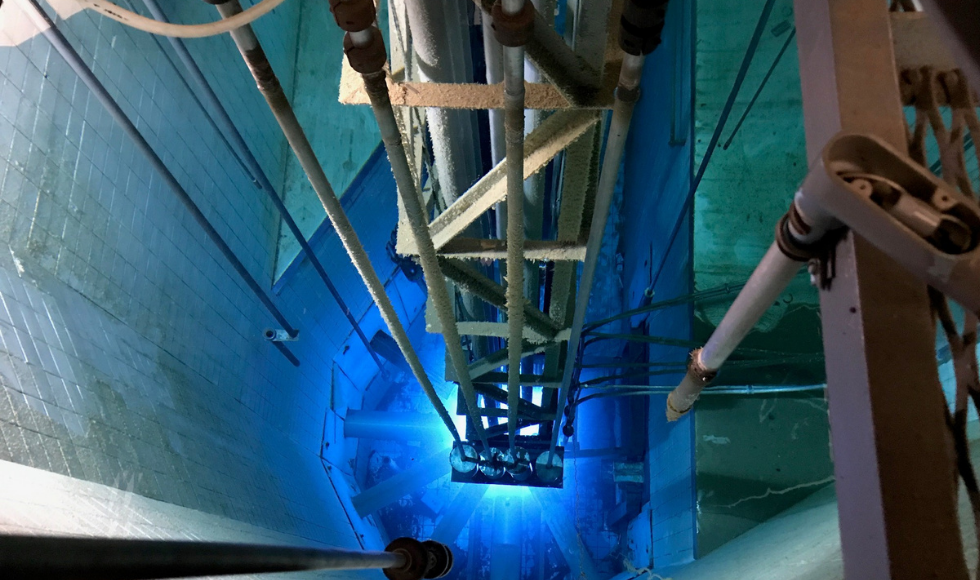
BY Daniella Fiorentino, Office of the VP (Research)
December 19, 2022
In 2022, McMaster collaborated with partners in the field of nuclear science on a range of projects, from small modular reactor research and development to improving access to medical isotopes and advancing neutron beam science in Canada.
Here are some of the top projects and partnerships from 2022 that have positioned McMaster for an even brighter future in nuclear research and innovation.
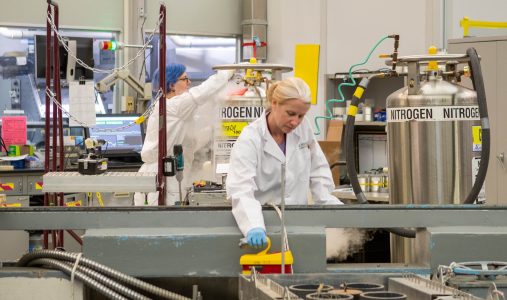
Celebrating McMaster’s Nuclear Team
This year, McMaster’s Nuclear Operations & Facilities (NO&F) welcomed several new team members and showcased the incredible work of staff in a series of interviews on the Nuclear at McMaster website.
From producing life-saving medical isotopes to managing McMaster’s world-class nuclear facilities and operating the McMaster Nuclear Reactor, our nuclear team enables innovation in nuclear medicine, clean energy, materials research and more.
In October, McMaster announced a new organizational structure for NO&F. The new structure is designed to ensure the safe and effective operation of the university’s nuclear facilities while growing its operating profile, building an expanded base of commercial products and services and enabling a far greater level of support to McMaster’s nuclear research and educational initiatives.
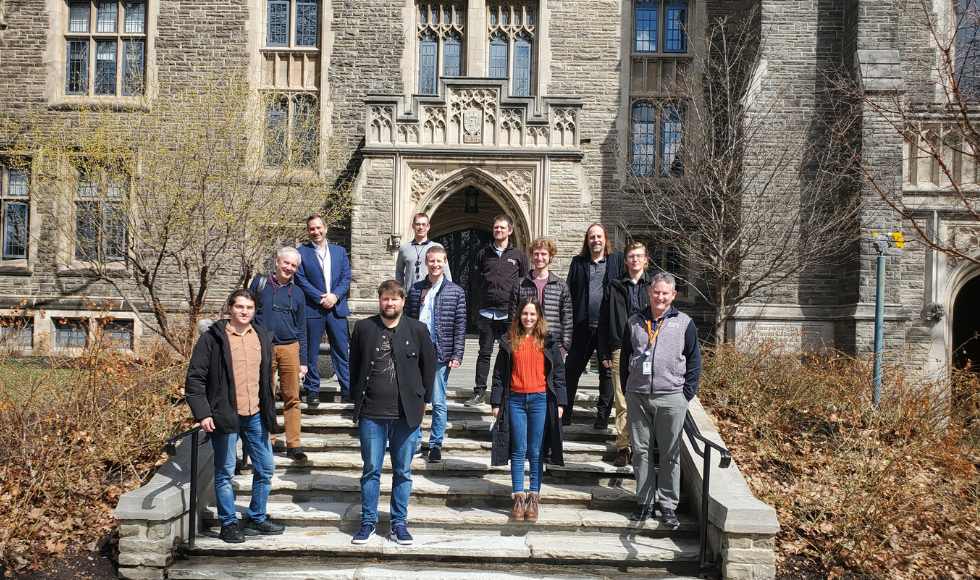
Partnering to Advance Nuclear Research & Education
This year, McMaster partnered with several academic and industry leaders to advance nuclear research and education at McMaster and abroad. In April, a team from the Technical University of Munich visited McMaster to kick-off research collaborations in reactor physics, boron neutron capture therapy and medical isotope production.
In November, McMaster signed a partnership agreement with Canadian Nuclear Laboratories and Atomic Energy of Canada Limited to collaborate on a variety of nuclear research projects and develop educational programs to train the next generation of talent in the nuclear industry, with access to hands-on training at our world-class nuclear research facilities.
McMaster also partnered with Ontario Power Generation (OPG), the Organization of Canadian Nuclear Industries and the University Network of Excellence in Nuclear Engineering (UNENE) to advance clean energy solutions in Ontario and support collaborative research on small modular reactors (SMRs).
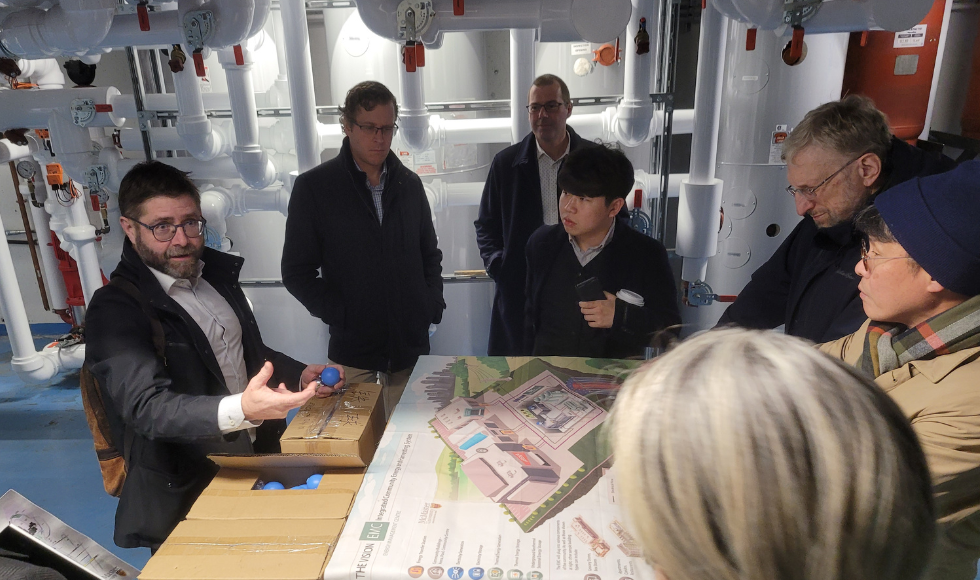
Envisioning a Cleaner World Using SMR Technology
Earlier this year, McMaster, Ultra Safe Nuclear Corporation (USNC) and Global First Power (GFP) announced their partnership to explore the potential of deploying USNC’s Micro-Modular™ Reactor (MMR®) on campus. Micro-reactors, or small modular reactors, are an important part of Canada’s net zero strategy. These reactors can provide clean, safe and reliable energy to homes, businesses and natural resource industries.
Leaders from USNC, GFP and OPG visited McMaster this fall for a tour of McMaster’s nuclear facilities and to discuss the university’s MMR feasibility study. Over the next several years, McMaster will work closely with partners to develop a pathway for a potential MMR deployment on campus that will act as a community demonstration site for this ground-breaking clean energy technology.
Learn more about SMR-related research taking place on campus.

Revolutionizing the Transportation of Medical Isotopes
In October, McMaster, Halton Healthcare, Drone Delivery Canada (DDC), Air Canada Cargo, DSV Canada and EllisDon celebrated the launch of Care by Air – a drone delivery project designed to revolutionize the way we transport medical isotopes and ensure that hospitals, health-care workers and patients receive the life-saving medical supplies they need in a timely manner.
McMaster’s expertise in medical isotope research and production will play a key role in the Care By Air project. McMaster researchers are developing medical isotopes that will be used to test Care By Air delivery. They are also working with regulatory bodies to expand flight paths and pave the way for this next-generation delivery model.
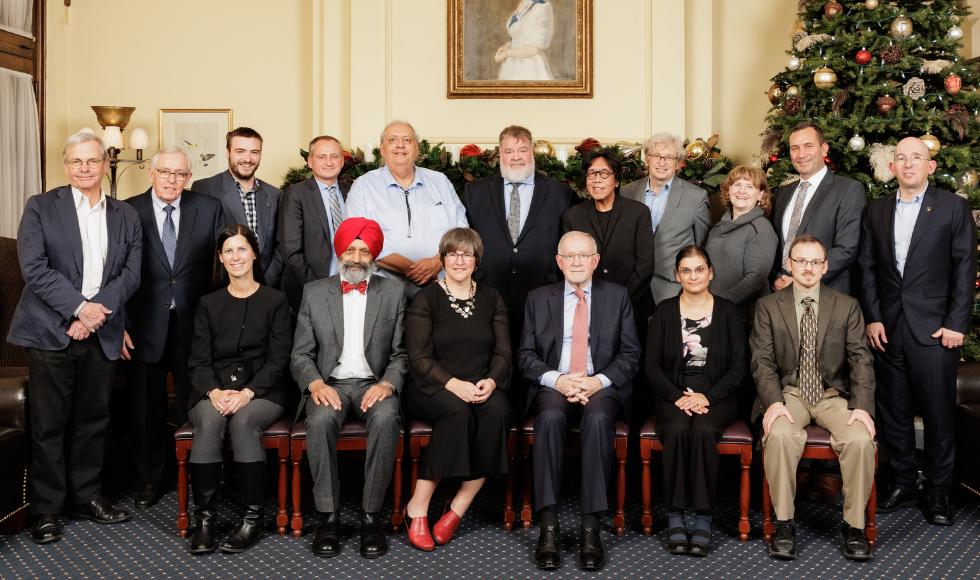
Building an Even Brighter Future
In December, McMaster hosted Neutrons Canada’s first board meeting. As a founding member of the organization, McMaster will play a central role in advancing access to neutron beam infrastructure for Canadian researchers, with the construction of a national neutron beam user laboratory at McMaster to support materials research in clean energy, health and medicine, safety and security.
In 2023, McMaster will begin construction on an expanded set of neutron beamlines and instruments under the CFI-funded “Building a Future for Canadian Neutron Scattering” project.
To read more stories from 2022 and stay up to date on the latest news, visit nuclear.mcmaster.ca.


